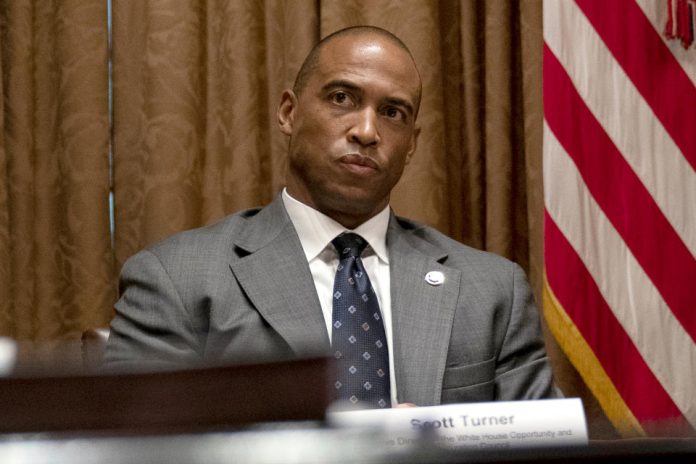Scott Turner’s Nomination Highlights the History of HUD as a “Black Job”
The announcement of Scott Turner’s nomination as Secretary of Housing and Urban Development (HUD) by President-elect Donald Trump took many by surprise. However, Turner’s selection also underscores a longstanding trend of Black leaders being appointed to lead this particular federal agency.
A History of HUD and Its “Black Job” Label
HUD, established in 1965 by President Lyndon B. Johnson, was created to address urban issues, including housing discrimination and deteriorating housing conditions. Its first secretary, Robert Weaver, became the first Black person to lead a Cabinet-level federal agency. Weaver’s appointment set a precedent, as HUD’s mission often focused on issues disproportionately affecting Black communities.
Over the years, HUD has had more Black secretaries than any other Cabinet department, with seven Black leaders prior to Turner’s nomination, including Patricia Harris, Samuel Pierce Jr., and Ben Carson. This trend has led to the perception of HUD as the “Black job” in presidential administrations.
HUD’s Role in Addressing Housing Inequities
HUD was created to combat racial discrimination in housing and promote homeownership affordability. For example, the Civil Rights Act of 1968 empowered HUD to enforce fair housing laws. Additionally, the establishment of the Government National Mortgage Association (Ginnie Mae) in the same year provided resources to increase homeownership for underrepresented groups, including Black Americans.
Despite these efforts, HUD’s leadership has not always benefited the communities it was designed to serve. Under some administrations, HUD’s focus shifted, and its impact on affordable housing and racial equity was criticized. This history makes the agency’s leadership critical to its mission.
Who is Scott Turner?
Scott Turner’s experience includes serving as Executive Director of the White House Opportunity and Revitalization Council during Trump’s first term. This role involved collaboration with HUD to support distressed communities. Turner also served two terms in the Texas State Legislature, making him more experienced in housing-related matters than some of his predecessors.
However, Turner’s nomination comes amid growing concerns about the future of HUD’s mission under the Project 2025 agenda. Authored by former HUD Secretary Ben Carson, this plan seeks to “reset HUD” and could potentially restrict program eligibility, raising questions about its impact on marginalized communities.
Trump’s Cabinet and Diversity Concerns
Turner’s nomination marks one of the few instances of racial diversity in Trump’s new Cabinet, which has been criticized for its overwhelmingly white composition. During Trump’s first term, his Cabinet was the least diverse in over 40 years, and his current slate of nominees reflects similar trends, with only one Black and two Latino appointees thus far.
This lack of diversity contrasts sharply with Trump’s campaign strategy, which sought historic levels of support from Black and Latino voters. Critics have highlighted the absence of prominent Black Trump supporters, such as Sen. Tim Scott and Rep. Byron Donalds, from Cabinet roles, sparking conversations about representation and loyalty within the administration.
As HUD’s next leader, Turner’s decisions could significantly influence the agency’s ability to fulfill its foundational purpose: promoting fair housing and improving urban living conditions for all Americans.






